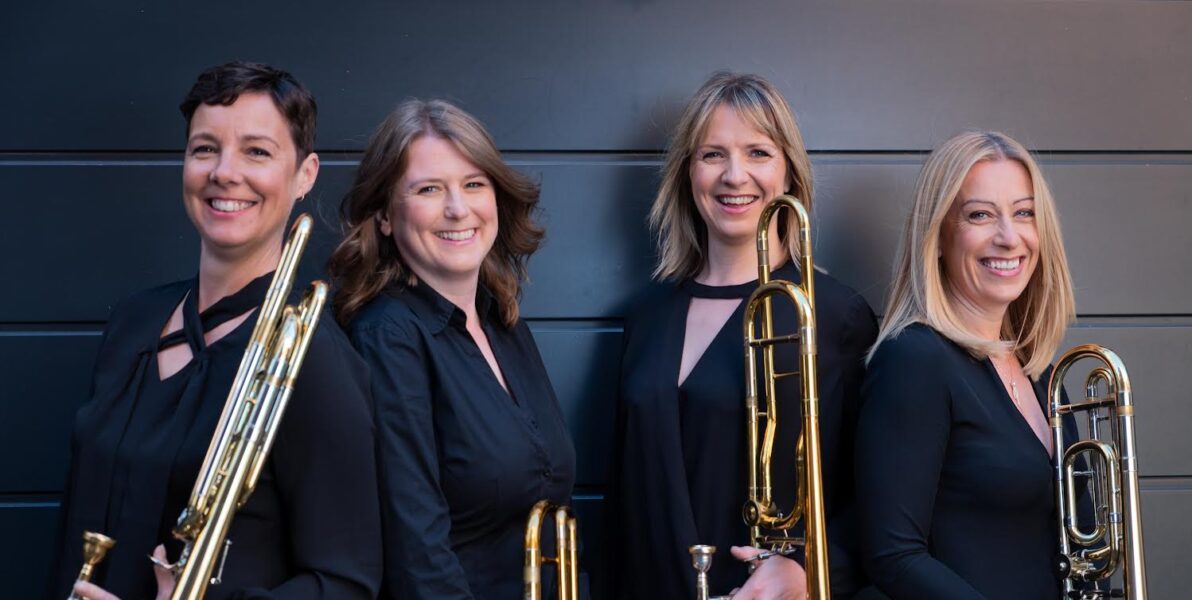Menu

Since winning the Royal Over-Seas League Competition in 2001, acclaimed trombone quartet Bones Apart has delighted audiences around the world with innovative concerts that draw on the players’ collective performance experience in orchestras, opera, early music, jazz, pop, film, big bands, West End shows and contemporary music.
With their programme ‘Wonder Women’, the quartet showcases music by female composers and songwriters as well as exploring historical female trailblazers from Boudicca to Cleopatra to Calamity Jane!
To find out more about the artists, see https://bonesapart.webs.com
With generous support from Skipton Mechanics’ Institute
Photo credit: Jon Cox
This concert is part of Skipton Music’s 75th anniversary season ‘Hidden Treasures: Celebrating Women Composers Across the Ages.’
An Enjoyable Feast with Bones Apart
The trombone quartet 'Bones Apart' served up a hugely enjoyable feast for Skipton Music, the latest in this year's series of 'hidden treasures' featuring music of female composers.
Last year members of Skipton Music were dazzled by the trumpet quartet 'Solus Ensemble' but the four virtuosi of 'Bones Apart' made a convincing case that a trombone quartet can produce an equally varied and fleet-footed programme. There was indeed something for all tastes, from the hauntingly beautiful sounds of single instruments against a delicate drone in a sequence by the mediaeval Hildegard von Bingen, to a suite of songs from the American musical 'Calamity Jane'. It was particularly interesting to hear the two pieces written specifically for this combination: 'Torc', by the quartet's leader Helen Vollam, uses a number of special effects to convey the sounds of the British forces commanded by Queen Boudicca and the Roman legions against which they fought; while the two-movement 'First Quartet' by the Dutch composer Saskia Apon exploits all the possibilities of the ensemble without the use of special effects.
Inevitably, many of the group's repertoire consists of arrangements of pieces originally written for other forces. Your reviewer particularly enjoyed the pieces by Lili and Nadia Boulanger which ended the first half, and the pieces by the Brazilian Chiquinha Gonzaga and a group of four female Hollywood singer/composers in the second half. Occasionally – for instance in the arrangement from Handel's 'Giulio Cesare' – it seemed difficult to pick out the melody from the accompanying parts at a similar pitch. But this was at most a very small inconvenience in what was all in all a deeply satisfying concert.
Charles Dobson